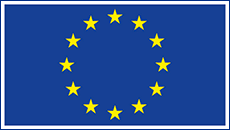A discussion on the issues identified in the targeted education sector of the “Commitment to Constructive Dialogue” project “Presentation, Discussion and Summary of Recommendations in Education and Social Spheres. Presentation of Actions for the Solution of these Issues in the scope of the Project” was held on 10 May.
38 representatives of the state bodies of education and social spheres, civil society and experts attended the event.
Discussions were focused on the need to improve the link between secondary vocational education and training and the labor market, including the development of a new strategic approach to it, as well as the need to improve, monitor and advocate a career counseling system at schools.
The issues identified within the framework of the “Commitment to Constructive Dialogue” project and the activities aimed at their solution within the framework of the project, were introduced. They were:
- The need to assess the key issues through monitoring the social inclusion of children with disabilities, the elaboration and/or improvement of public policies and advocacy of reforms implementation,
- The need for improvement, monitoring and advocacy support to community-based support centers.
Ms Armenuhi Avagyan, associate professor of the Chair of Logopaedics and Rehabilitation Therapy at ASPU named after Khachatur Abovyan, also considered both as important, and during a conversation with us she also mentioned that such meetings resulted in identification of a number of issues.
“As a rule, we speak less about problems, especially with respect to inclusive education, we talk more about achievements, but the obstacles and problems will remain as long unless we have not talked about them and did not discuss them, we did not discuss their solutions,” she said.
According to Armenuhi Avagyan, the topic of the discussion could be particularly highlighted by the problems of pedagogues, the problems of multidisciplinary teams, trainings, the need for assessment of teaching of the children with special needs, as well as the issue of social inclusion. “Unfortunately, in our country, there are no plans to move from one or another age group to another high school or to a self-employed life skills and social inclusion program and so-called individual transition plans. I have never been discussing such issues, “Armenuhi Avagyan said.
Mr. Tigran Chorokhyan, Expert of Inclusive Education, noted that as a result of the discussions direct problems have been raised. In addition as a result of monitoring of the existing problems the issues of how the civil society representatives or other actors in the field could participate in the discussion of public policies or processes with the Government as equal partners. “Policymaking should be based on reality and therefore today we discussed the monitoring approaches and methodologies which should apply the civil society in order to be able to form single data systems, how to keep those data, who will keep the data and who will analyze, process and incorporate them into the of public policy processes. This is a process that the civil society and the Government should realize,” Tigran Chorokhyan said.
The “Commitment to Constructive Dialogue” project (hereafter: Project) is implemented by a consortium of the following civil society organisations: “Armenian Lawyers’ Association” NGO (the lead organisation), “International Centre for Human Development” Public Organisation “SME Cooperation Association” NGO, Union of Communities of Armenia, “Armenian Centre for Democratic Education-CIVITAS” NGO, and Agora Central Europe o.p.s (an NGO from the Czech Republic). The Project aims at reinforcing civil society voice and dialogue with the government.
Alisa Chilingaryan


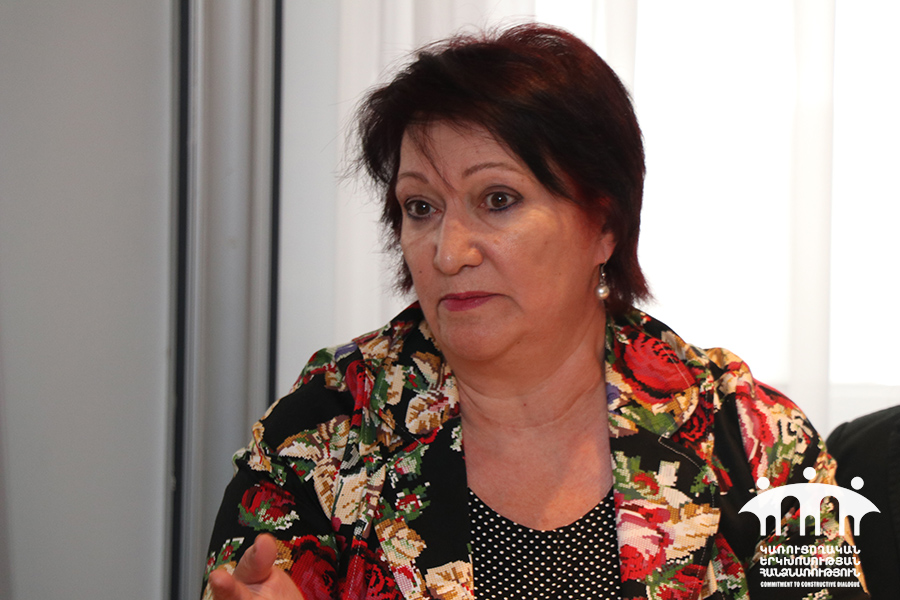

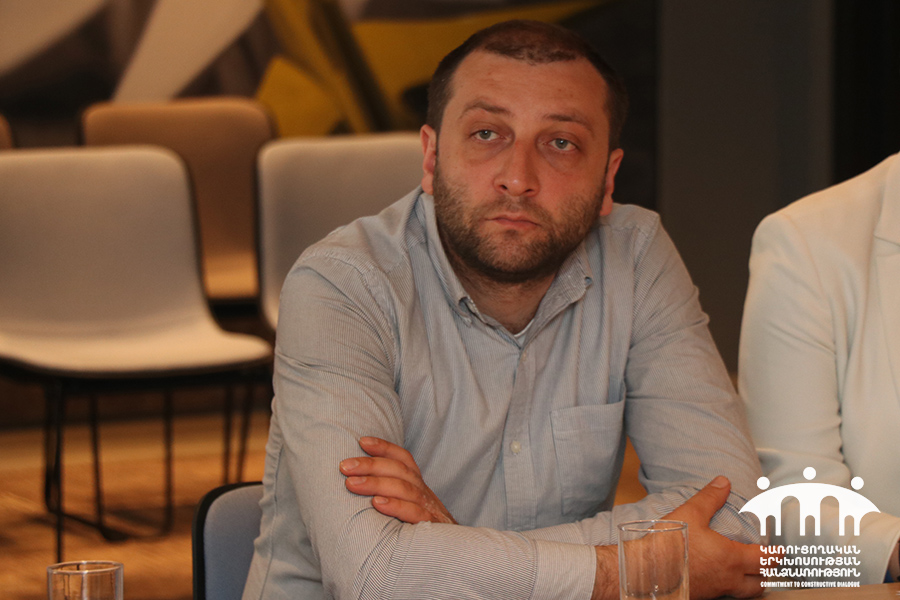

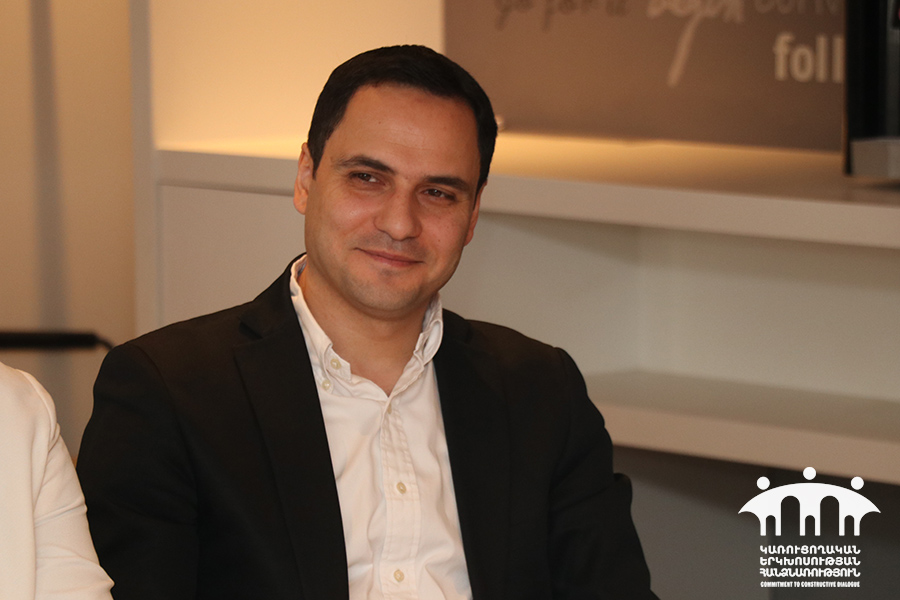

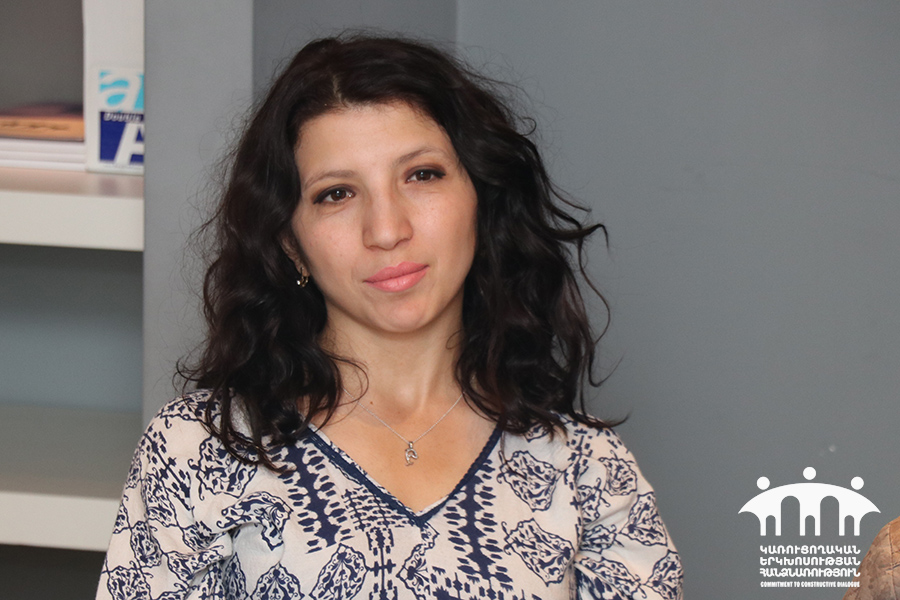

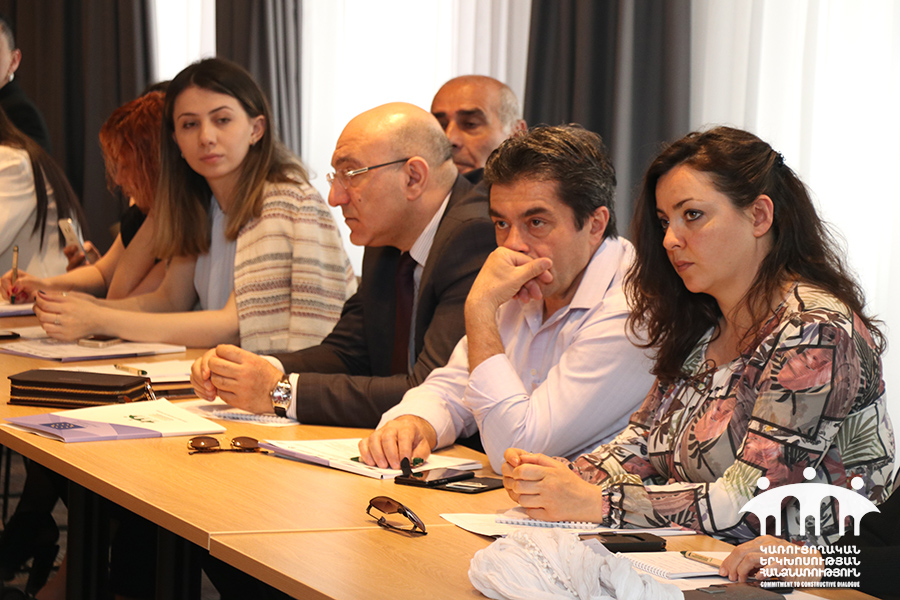

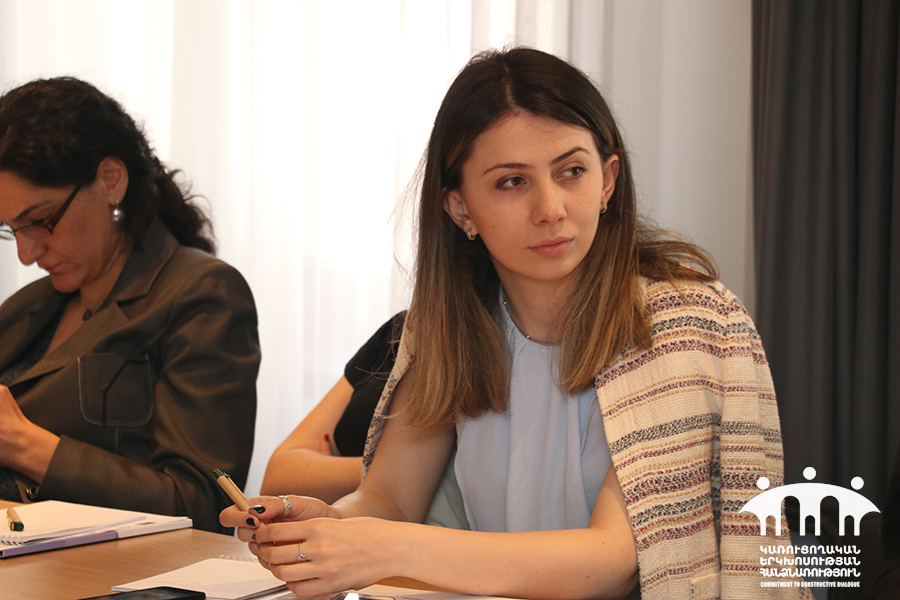

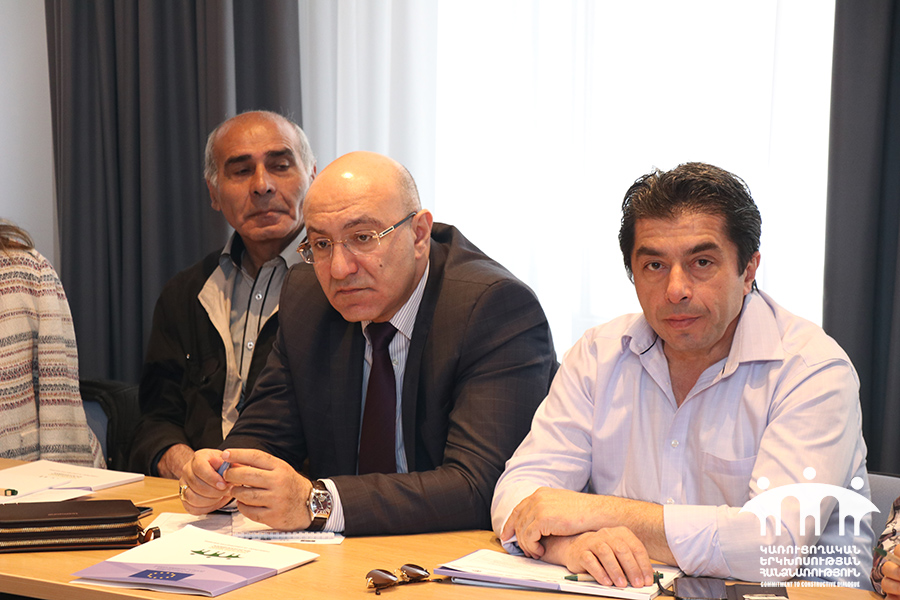

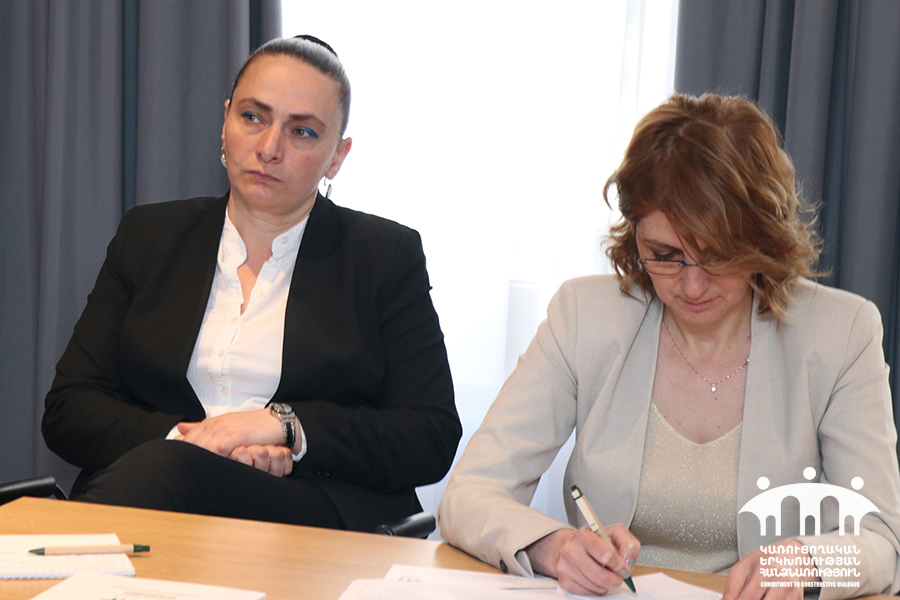

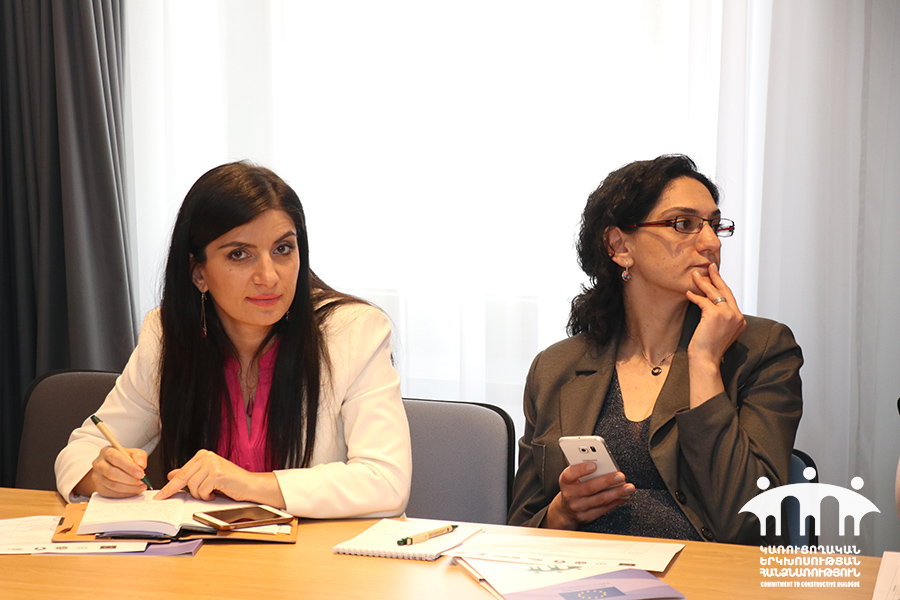

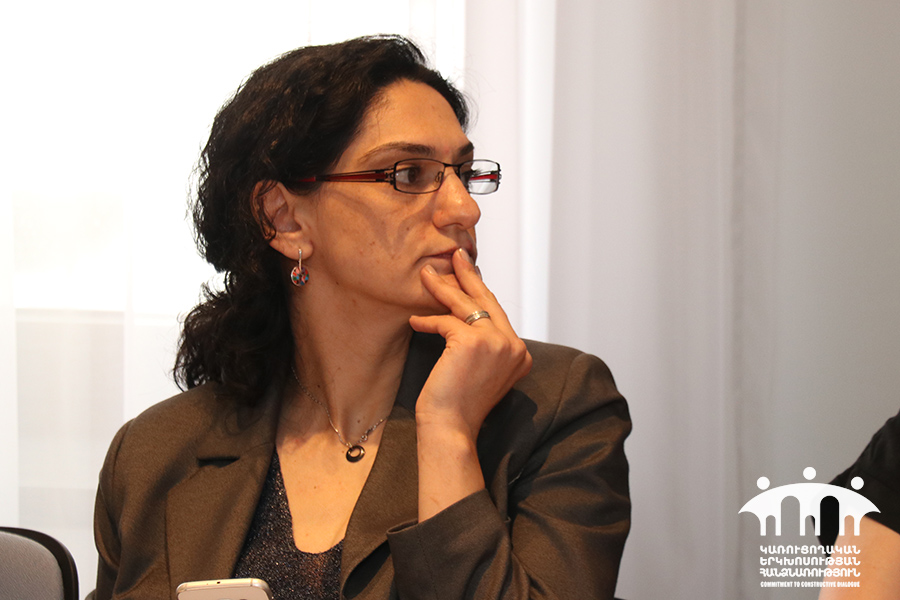

.jpg)
.jpg)
